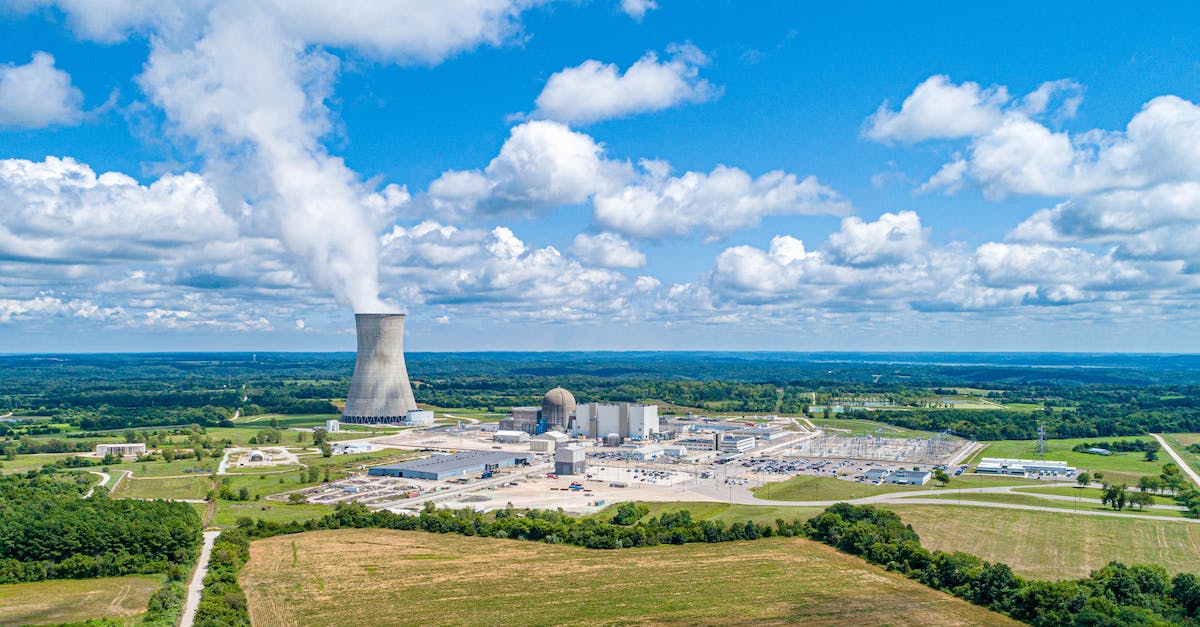Introduction to Small Modular Nuclear Reactors in Nebraska
Officials in Nebraska have started examining the possibilities of enlarging the state’s nuclear energy output by contemplating the establishment of small modular nuclear reactors. State legislators assembled on Friday to analyze the viability of these reactors for generating electricity. The experts present attested to the clean and efficient nature of this energy production method. Furthermore, the implementation of small modular nuclear reactors could significantly contribute to meeting the state’s energy demands while reducing carbon emissions. The lawmakers are now diligently considering the investment and regulatory aspects, as well as potential challenges in relation to safety and disposal of nuclear waste.
Long-range Energy Strategy and Global Interest
State Sen. Tom Brewer of Gordon emphasized the necessity for a long-range energy strategy, stating that wind and solar options will ultimately reach their limits, necessitating the discovery of alternatives. Small modular reactors have garnered global interest as utility companies argue they provide benefits over conventional, larger reactors, such as reduced construction expenses, decreased space needs, and increased location and power generation flexibility. However, detractors contend that the efficacy of these reactors remains unproven and that they still pose issues related to radioactive waste, high construction costs, and potential abuse of nuclear materials. Moreover, some critics argue that investing in small modular reactors could divert resources from further developing renewable energy sources, such as wind and solar. As the global energy landscape continues to evolve, it remains crucial for policymakers to weigh the potential benefits and drawbacks of small modular reactors while considering their role in meeting long-term energy needs and reducing greenhouse gas emissions.
Nebraska Public Power District’s Role
Tom Kent, CEO of the Nebraska Public Power District, stressed the effectiveness of the novel technology behind the small modular reactors, although they cannot hold as much energy as bigger plants. The Nebraska Public Power District has been using funds authorized by the Legislature to seek appropriate sites for reactor construction. Kent disclosed that several possible locations have been discovered and are presently being evaluated. Some factors considered in selecting the best sites include proximity to existing power infrastructure, accessibility for construction crews, and environmental concerns. Once an appropriate location has been chosen and approved, construction is expected to begin on the small modular reactor, marking a significant milestone in Nebraska’s clean energy journey.
Addressing Challenges and Development Timeline
Although the government supports this initiative, Kent estimates that at least a decade will pass before a small nuclear reactor is built in Nebraska, due to the lengthy licensing process. To expedite the development, he proposed simplifying the permit process and addressing the state’s labor shortage to guarantee adequate staffing for reactor operations. Furthermore, Kent believes that streamlining regulations and providing targeted training programs can help attract a skilled workforce in the nuclear sector. Creating partnerships with academic institutions and local industries could also serve as a strong foundation for the development and sustainable operation of small nuclear reactors in Nebraska.
Advantages and Concerns of Nuclear Energy
Nuclear engineer Jan Bostelman pointed out that nuclear energy has numerous advantages, such as not depending on continuous resource supplies like solar or wind. As Nebraska explores the expansion of nuclear power, officials are weighing the pros and cons of clean energy against the costs and risks associated with nuclear technology. Additionally, nuclear energy produces significantly less waste and emissions compared to fossil fuels, making it a compelling choice for clean power generation. However, concerns surrounding radioactive waste disposal, the potential for accidents, and the high initial capital investment required for building nuclear power plants are factors that officials must carefully consider in their decision-making process.
First Reported on: omaha.com
FAQ
What are small modular nuclear reactors?
Small modular nuclear reactors are smaller, more flexible versions of conventional nuclear reactors, which are designed to provide clean and efficient energy. They have been garnering global interest as a potential alternative to traditional, larger reactors due to reduced construction expenses, decreased space needs, and increased location and power generation flexibility.
Why is Nebraska considering small modular nuclear reactors?
Nebraska is examining the possibility of expanding its nuclear energy output to meet the state’s energy demands while reducing carbon emissions. State legislators are exploring the investment and regulatory aspects of these reactors, as well as potential challenges related to safety and disposal of nuclear waste.
What is the role of the Nebraska Public Power District in this initiative?
The Nebraska Public Power District is using funds authorized by the Legislature to seek appropriate sites for small modular nuclear reactor construction. They are evaluating multiple potential locations and considering factors such as proximity to existing power infrastructure, accessibility for construction crews, and environmental concerns.
What is the estimated timeline for the development of small nuclear reactors in Nebraska?
Due to the lengthy licensing process, it is estimated that at least a decade will pass before a small nuclear reactor is built in Nebraska. Streamlining regulations and providing targeted training programs are being proposed to expedite development.
What are the advantages and concerns of nuclear energy?
Advantages of nuclear energy include decreased dependence on continuous resource supplies like solar or wind, and significantly reduced waste and emissions compared to fossil fuels. However, concerns surrounding radioactive waste disposal, potential accidents, and the high initial capital investment required for building nuclear power plants must be carefully considered.
Featured Image Credit: Photo by Michael Gattorna; Pexels; Thank you!

